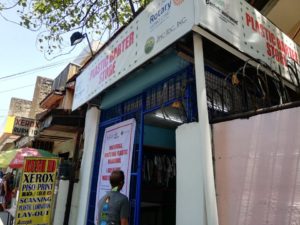A barter store that protects environment, inspires livelihood
CEBU CITY, Philippines— It has only been four days since the Plastic Barter Store opened but already it has collected a total of 212 kilos of plastic wastes.
The store located along Mabini Street in Barangay Sto. Niño is fast becoming the destination of street dwellers, who used to go to junk shops to sell whatever they find from scavenging reusable items or resaleable materials from trash cans.
Gina Espenilla, the store in-charge, says they have since welcomed families who exchanged their collected plastic wastes for rice, slippers or toys.
“So far, in the last four days, we noticed that those who come over are children and families. They bring in the plastic they collected, I weigh them and then depending on the weight, they can exchange it for slippers, rice or toys,” she tells CDN Digital in the Visayan language.
CDN Digital chanced upon nine-year-old Felicity on Wednesday morning, June 19, who came to the store to bater four kilos of plastic wastes with something her family can eat.
She left the store with one kilo of rice.
READ: Barter Store opens in Cebu City to accept plastic garbage from street dwellers in exchange for goods
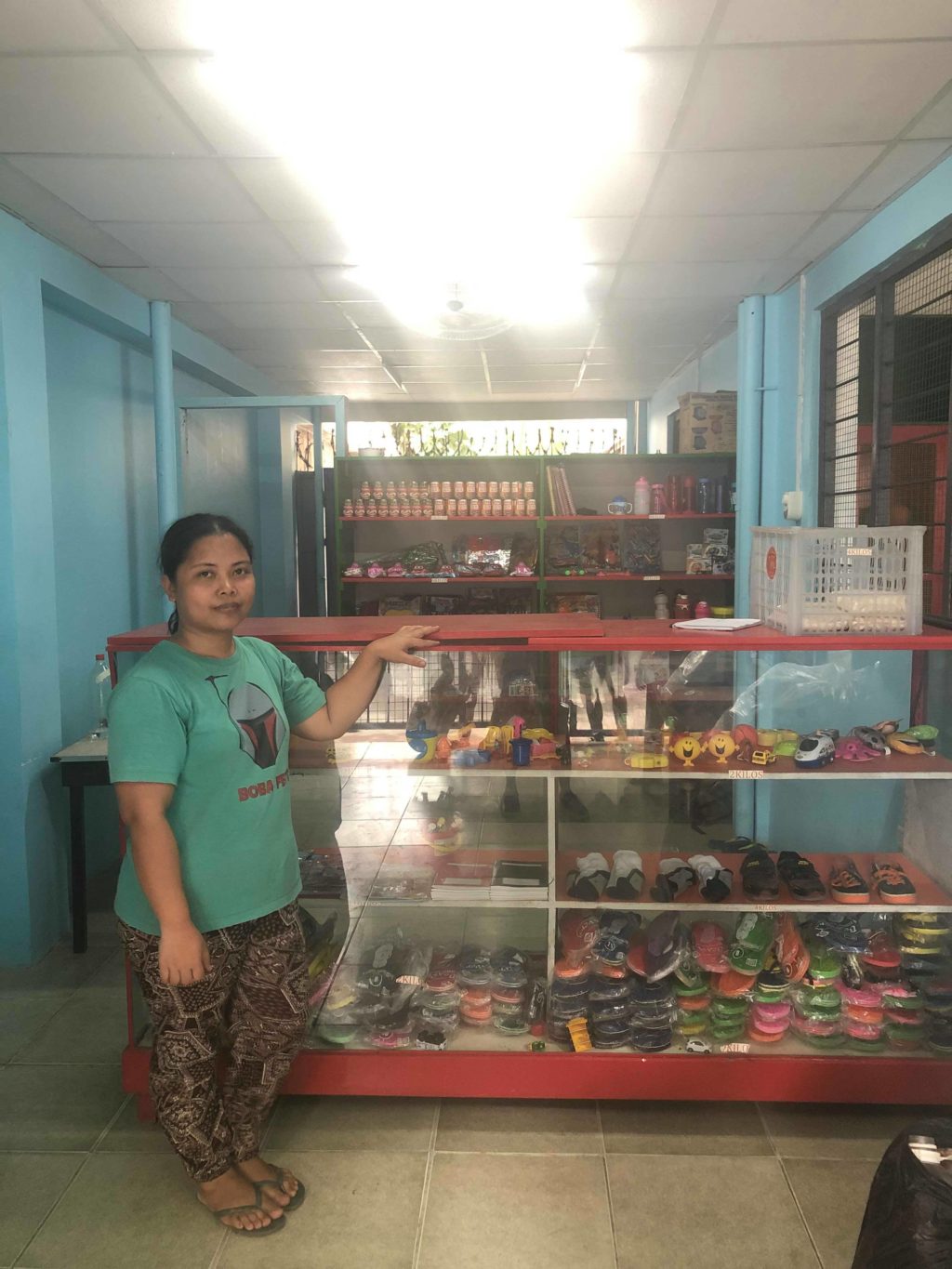
Gina Espenilla, store in-charge, shows some of the items on display that is up to be bartered with plastic wastes. CDND PHOTO / Immae Lachica
System
The Plastic Bar Store operates under a simple system: anyone with plastic wastes can come to the store and exchange these wastes for food, slippers, school supplies, water jugs, utensils or toys.
For example, two kilos of plastic wastes can be exchanged with a pair of slippers and small toys.
Four kilos of plastic wastes can be bartered for any of the following:
- A piece of clothing;
- Shool supplies of their choice, either a notebook or a box of crayons,
- A pair of socks;
- Apair of shoes; or
- A kilo of rice.
Six kilos of plastics can be exchanged with toy sets and sewing materials.
Eight kilos of plastics can be exchanged for two canned goods and one water bottle.
The first of its kind in Cebu, the store is made possible by the efforts of the Rotary Club of Metro Cebu under its 12 Basket Movement.
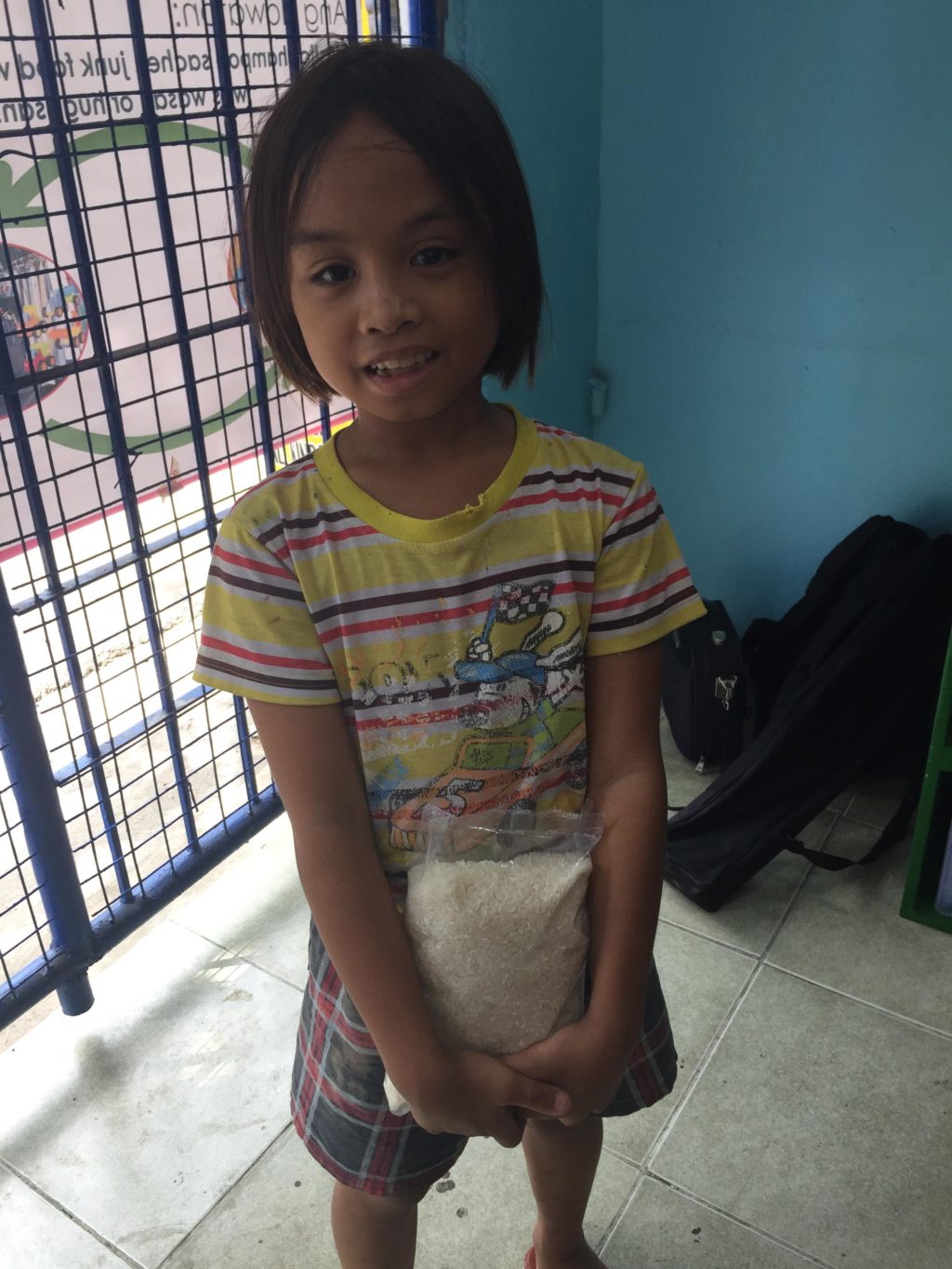
Felicity, 9, barters four kilos of plastic wastes with one kilo of rice. CDND PHOTO / Immae Lachica
Barter
Felicity says it was her first time to visit the store.
She learned about it from their neighbors.
“Ganahan ko mo baylo dinhi kay makaon ang akong makuha, di kwarta” she says.
(I like to barter here because I get food, not money).
Explaining Felicity’s answer, Gina says that junk shops only pay P5 per kilo of plastic.
“Sometimes, they’re even cheated by junk shop people because they’re children,” she says.
“That’s why you see happy faces every time they go out of the store because they go home with clothes or food,” shares Gina.
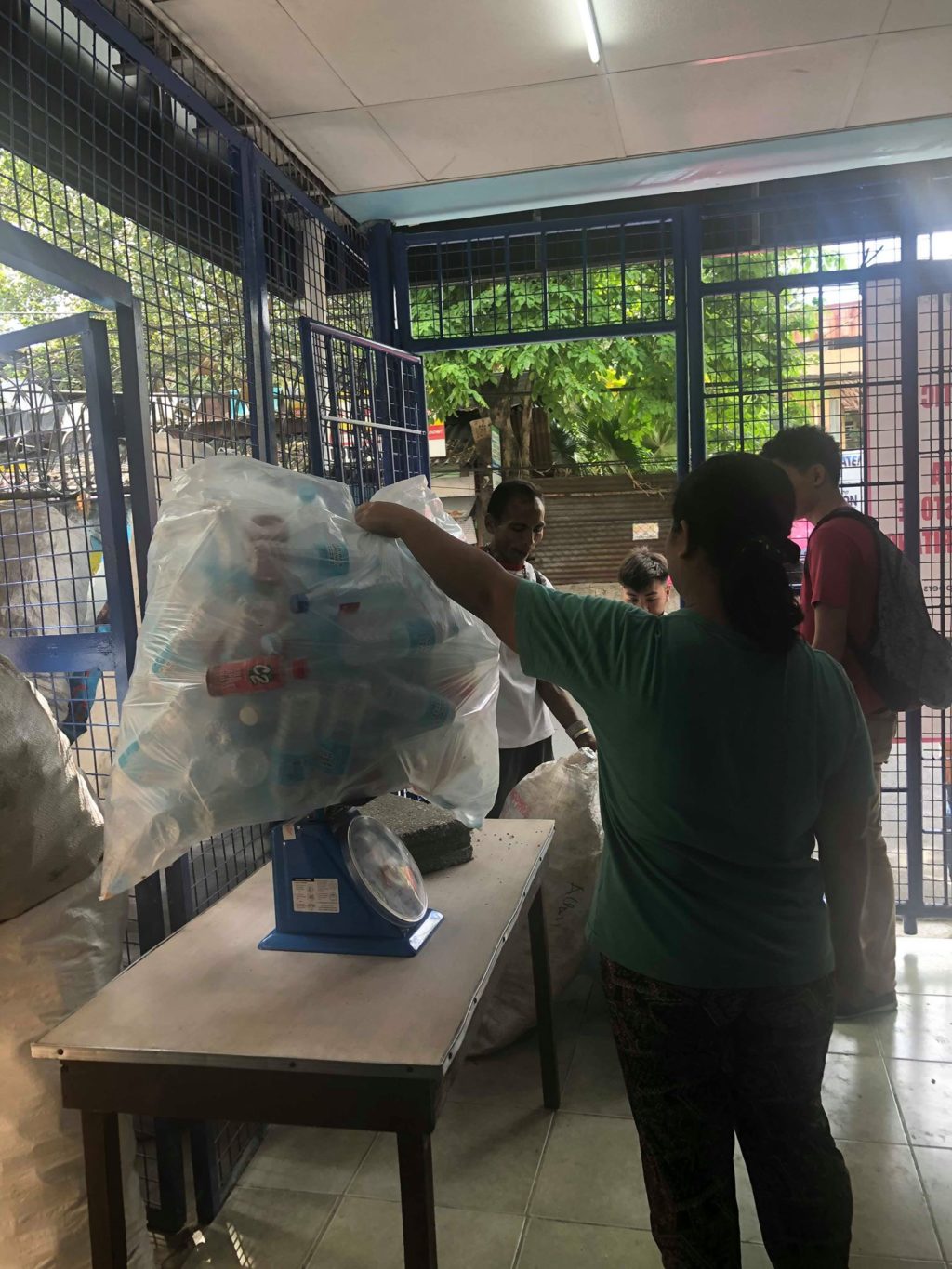
Gina weighs the plastic wastes brought in by one of the customers. CDND PHOTO / Immae Lachica
Gina, who was once a scavenger herself, says she is grateful for this project because it took her out of the dumpsite in Barangay Umapad in Mandaue City.
She is now able to pay it forward by tending to a store that entertains street dwellers and scavengers.
“Those who come with only one kilo of plastic, I tell them to just deposit it here and then come back with more because they cannot exchange goods with only one kilo of plastic,” explains Gina.
The plastic wastes are kept in a storage area in the store.
The wastes will be transported to San Pio Village in Dumlog, Talisay City where their eco-hollow center is located.
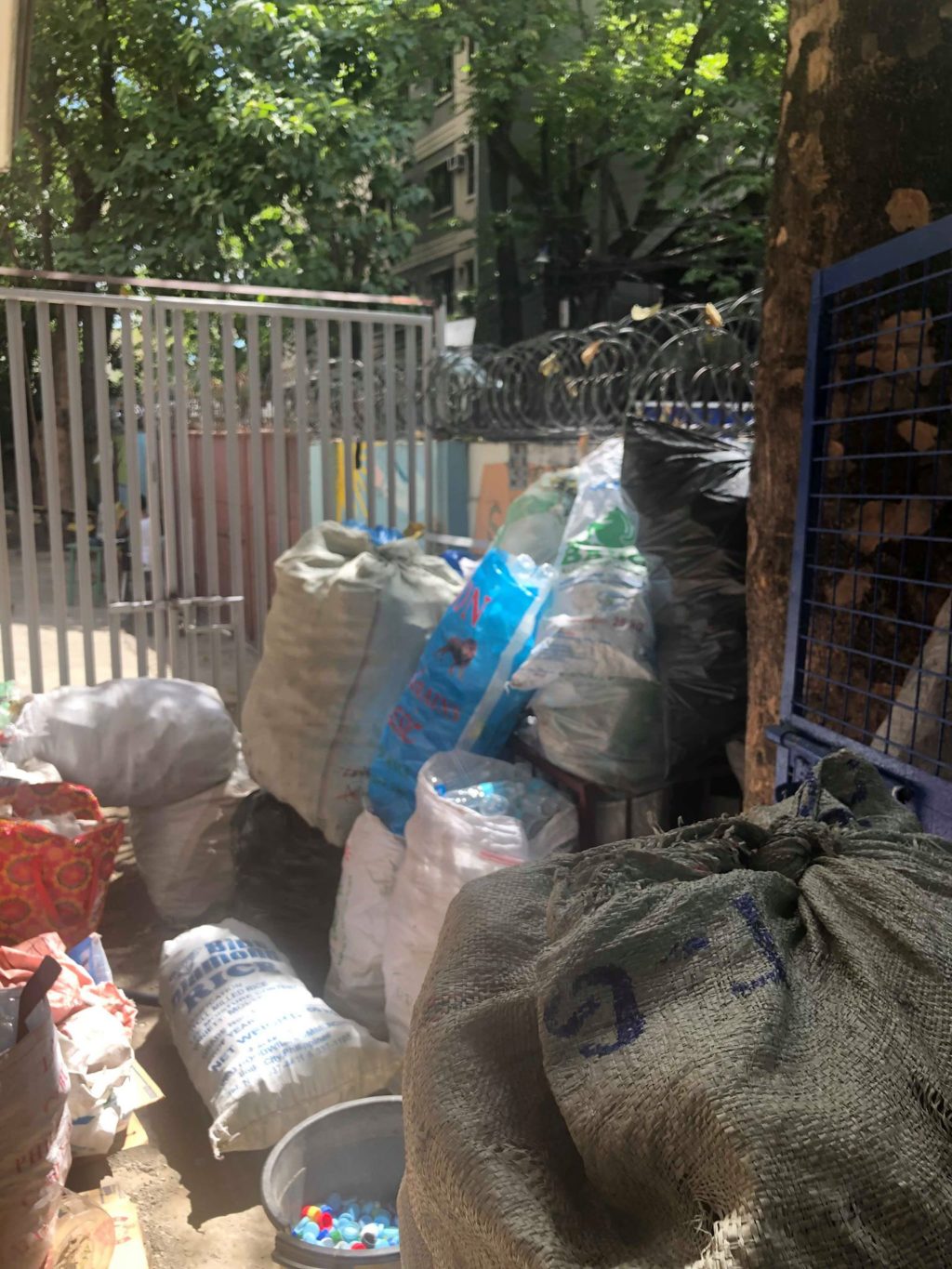
The area within the store premises, where the plastics collected by the people are currently stored. CDND PHOTO / Immae Lachica
Eco-hollow blocks
Eco-hollow blocks are made from the plastic wastes that were collected and will soon be sold to the market.
The proceeds of the eco-hollow blocks will go directly to the first group of livelihood beneficiaries, who are former dumpsite scavengers of Inayawan and Umapad.
Adrian Lee, chairman of the 12 Baskets Movement, says they have not yet started with the production of the eco-hollow blocks as they are still waiting for the electric connection of their production center.
Lee says both shredder and hollow block machines are powered by electricity.
Lee says they will produce hollow blocks, instead of bricks, since the former is more useful to the masses.
The hollow blocks will be sold at P12 to P14 per piece.
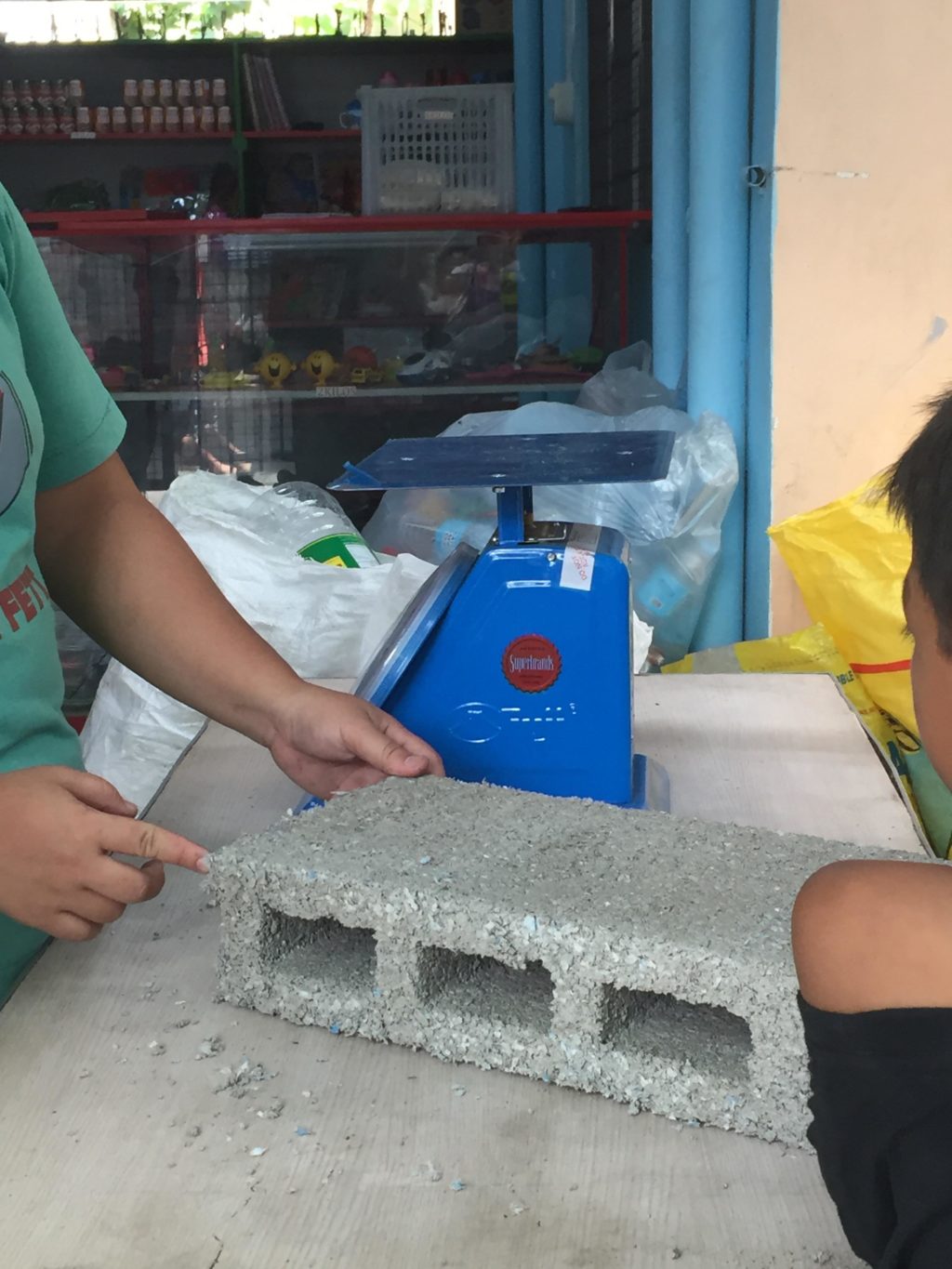
The eco-hollow block is the end product of this project after collecting all the plastics exchanged by the people. CDND PHOTO / Immae Lachica
Everyone and anyone is welcomed to go to the store and exchange their plastic bottles and plastic wrappers with something from the store’s display.
Just make sure that you have at least two kilos of plastic to participate in this environment-friendly barter system.
With the response the Plastic Barter Store has been getting from the public, the future for a plastic-free Cebu looks brighter. / celr
Disclaimer: The comments uploaded on this site do not necessarily represent or reflect the views of management and owner of Cebudailynews. We reserve the right to exclude comments that we deem to be inconsistent with our editorial standards.
